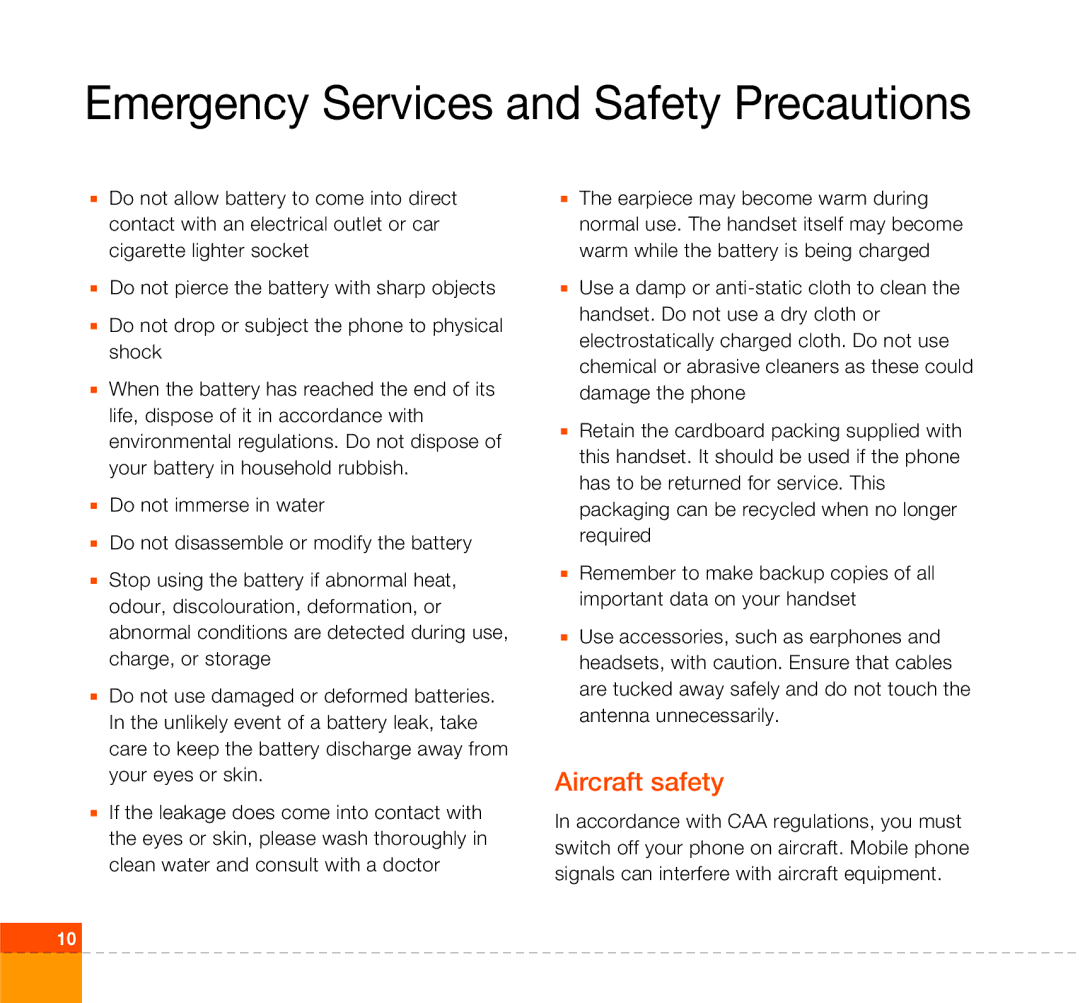Emergency Services and Safety Precautions
ADo not allow battery to come into direct contact with an electrical outlet or car cigarette lighter socket
ADo not pierce the battery with sharp objects
ADo not drop or subject the phone to physical shock
AWhen the battery has reached the end of its life, dispose of it in accordance with environmental regulations. Do not dispose of your battery in household rubbish.
ADo not immerse in water
ADo not disassemble or modify the battery
AStop using the battery if abnormal heat, odour, discolouration, deformation, or abnormal conditions are detected during use, charge, or storage
ADo not use damaged or deformed batteries. In the unlikely event of a battery leak, take care to keep the battery discharge away from your eyes or skin.
AIf the leakage does come into contact with the eyes or skin, please wash thoroughly in clean water and consult with a doctor
AThe earpiece may become warm during normal use. The handset itself may become warm while the battery is being charged
AUse a damp or
ARetain the cardboard packing supplied with this handset. It should be used if the phone has to be returned for service. This packaging can be recycled when no longer required
ARemember to make backup copies of all important data on your handset
AUse accessories, such as earphones and headsets, with caution. Ensure that cables are tucked away safely and do not touch the antenna unnecessarily.
Aircraft safety
In accordance with CAA regulations, you must switch off your phone on aircraft. Mobile phone signals can interfere with aircraft equipment.
10
